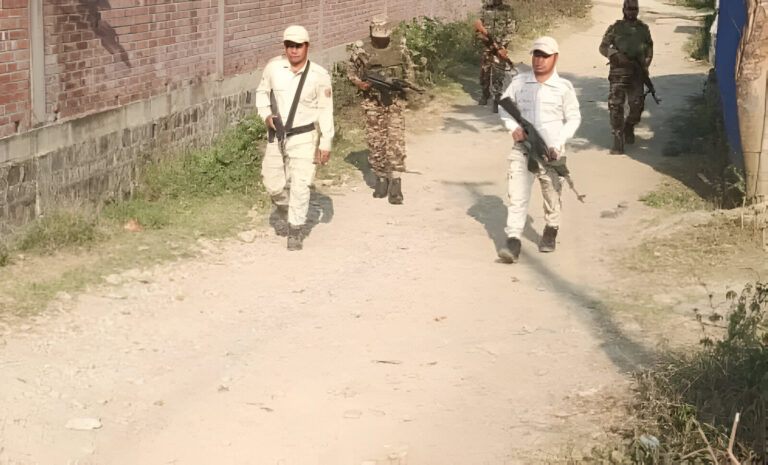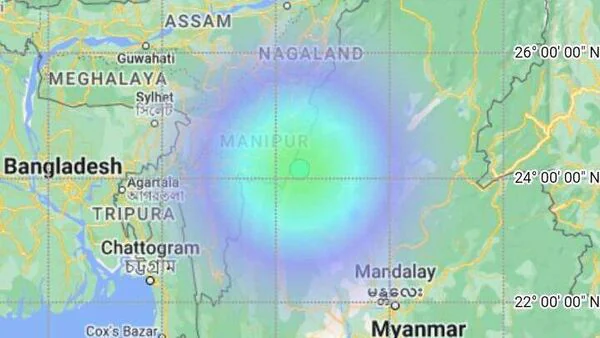Biren Singh’s Incompetence: A Setback for Northeast India
Summary: The article criticizes Manipur’s Chief Minister, Biren Singh, for his role in escalating ethnic clashes in the region. It argues that his poor leadership is not only harming Manipur but also negatively affecting the neighboring states of Northeast India. The writer discusses how Singh’s narrative-driven politics has exacerbated conflicts and tensions, undermining peace and stability in the region.
The Detrimental Impact of Biren Singh’s Leadership on Northeast India
Biren Singh, the Chief Minister of Manipur, has long been a polarizing figure in the Northeast. His governance has been marked by a series of controversial decisions, particularly regarding the ongoing ethnic clashes in Manipur. What initially seemed like isolated incidents of violence has now spiraled into a regional crisis, deeply affecting not just the people of Manipur but the surrounding states as well.
The Roots of the Conflict in Manipur
Manipur, a state rich in culture and diversity, has been plagued by ethnic tensions for years. However, the intensity and scale of violence escalated under the leadership of Biren Singh. Instead of fostering a harmonious environment for dialogue and resolution, Singh’s actions have consistently aggravated the situation. By aligning himself with certain ethnic groups while alienating others, he introduced a narrative of division rather than unity.
This narrative has reverberated beyond the state’s borders, spreading unrest to Assam, Nagaland, Mizoram, and other parts of Northeast India. The consequences of this divisive leadership are being felt on all fronts—socially, politically, and economically. The question arises: how can a leader of such importance fail to address the core issues in his own state, and by extension, jeopardize the stability of an entire region?
The Escalation of Ethnic Tensions
At the heart of the issue lies the complex relationship between the Kuki and Meitei communities. While this conflict has historical roots, it reached new heights under Singh’s tenure. His inability to effectively mediate and offer solutions resulted in significant loss of life, displacement, and destruction of property. Moreover, his political rhetoric has often added fuel to the fire, rather than extinguishing the flames of discord.
Singh’s approach to dealing with these tensions has been nothing short of disastrous. His government has been slow to act, offering half-hearted solutions to problems that demand urgent attention. As a result, not only have the people of Manipur suffered, but the ripple effects have extended to the neighboring states, causing increased insecurity and instability.
A Leadership Built on Divisiveness
Biren Singh’s leadership has been marked by a series of missteps. His lack of sensitivity to the ethnic diversity of Manipur, coupled with a failure to prioritize the state’s long-term peace, has been detrimental. His political maneuvering has further deepened the rift between communities. Singh’s government has often been accused of favoring certain groups over others, which has only intensified the ethnic divide.
Instead of taking the role of a reconciler, Singh has positioned himself as a political player who manipulates ethnic narratives for his own gain. This strategy has not only failed to address the root causes of the violence but has also worsened the situation, fostering a climate of fear and suspicion.
The Impact Beyond Manipur: How the Region is Affected
While the primary focus of the article is on the troubles in Manipur, the consequences of Singh’s leadership extend far beyond its borders. Neighboring states such as Assam, Nagaland, and Mizoram have felt the effects of these ethnic clashes, both directly and indirectly. Increased unrest, cross-border tensions, and the displacement of communities are just some of the regional challenges sparked by Singh’s policies.
The spillover of violence into Assam and Mizoram has created an atmosphere of distrust, complicating the already fragile relationships between the states. Singh’s inability to maintain peace within Manipur has, therefore, become a national issue, affecting the political and social fabric of the Northeast.
The Economic Toll on the Region
Aside from the social and political implications, the economic impact of Biren Singh’s leadership is equally alarming. The instability caused by ethnic clashes has led to disruptions in trade, tourism, and investment in the region. Manipur, along with its neighboring states, has experienced economic setbacks due to the persistent violence and the subsequent decline in economic activities. As businesses shutter and tourism fades, the livelihoods of thousands of people are at risk, adding to the already dire humanitarian situation.
The Road Ahead: Is There a Way Out?
With Manipur and the surrounding states reeling from the consequences of Singh’s governance, the question remains: is there a way out of this mess? The first step toward resolution must come from the leadership. Biren Singh needs to acknowledge his failures and shift his approach from divisive politics to one of reconciliation. His role as the Chief Minister of Manipur demands that he put the welfare of his people above all else.
However, this will require a profound change in the way he governs. Singh must not only ensure that peace is restored within Manipur but also work toward healing the rift that has formed between his state and its neighbors. This will require both political will and a commitment to impartiality—qualities that, unfortunately, have been sorely lacking under his leadership.
Conclusion: A Call for Leadership Transformation
Biren Singh’s incompetence is not just a problem for Manipur—it is a problem for the entire Northeast. His leadership has triggered a chain of events that has destabilized the region, harming its people and its prospects for a peaceful future. It is clear that a change in leadership and a shift toward inclusive, peace-building politics is essential. Until then, the people of the Northeast will continue to bear the brunt of Singh’s failures.
FAQs
1. How has Biren Singh’s leadership affected the people of Manipur? Biren Singh’s leadership has led to increased ethnic clashes, displacement, and loss of lives in Manipur, worsening the state’s internal divisions.
2. What role did Singh’s rhetoric play in the conflict? Singh’s divisive rhetoric has intensified the ethnic tensions between the Kuki and Meitei communities, further fueling the violence.
3. What has been the economic impact of the ethnic violence in Manipur? The ongoing violence has disrupted trade, tourism, and investment, leading to economic setbacks in Manipur and surrounding states.
4. How have neighboring states been affected by the conflict? Neighboring states like Assam, Mizoram, and Nagaland have experienced spillover violence, cross-border tensions, and increased insecurity due to the instability in Manipur.
5. What needs to happen for peace to be restored in Manipur? Biren Singh must take accountability for his failures and prioritize reconciliation, while fostering peace-building efforts both within Manipur and with its neighboring states.



